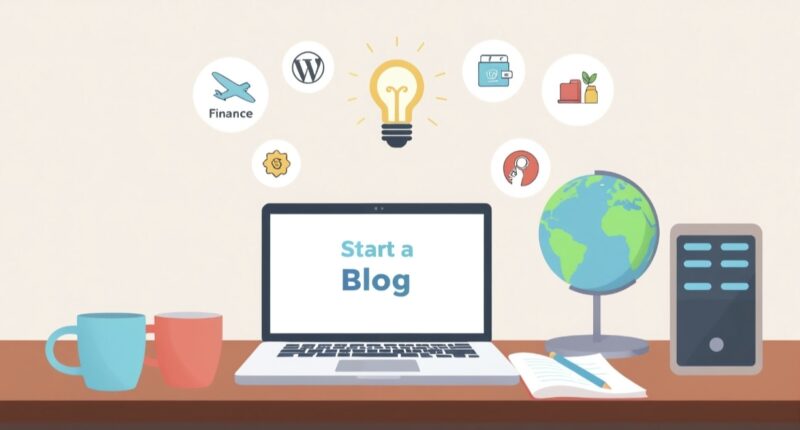Starting a blog is one of the most effective ways to share your ideas, build an online presence, and even earn income. For beginners, the process can look overwhelming, but following a clear sequence of steps makes launching a professional blog achievable. This guide walks you through each essential step so you can start confidently.
Step 1: Choose Your Blogging Niche
A niche defines the primary topic your blog will focus on. Popular niches include finance, travel, food, lifestyle, technology, and personal development. Choose a niche that matches your passion and has an audience. Validate your idea by checking search interest and competitor blogs to ensure the niche can attract readers and, eventually, monetization opportunities.
How to pick a niche
- List topics you enjoy writing about.
- Check whether people search for these topics (keyword research).
- Look for gaps where you can offer unique value.
Step 2: Select a Blogging Platform
Choose a platform that fits your goals. WordPress.org is the most popular choice because it offers flexibility, SEO tools, and a large plugin ecosystem. Simpler options like Blogger, Wix, or Squarespace are easier to set up but may limit growth and customization.
Platform pros and cons
- WordPress.org: Highly customizable, SEO-friendly, requires hosting.
- Wix / Squarespace: Beginner-friendly, less technical control.
- Blogger: Free and simple, limited scalability.
Step 3: Pick a Domain Name and Hosting
Your domain name is your blog’s identity (for example: yourblogname.com). Choose a short, memorable name that reflects your niche or brand. For hosting, pick a reliable provider such as Bluehost, SiteGround, or Hostinger to ensure fast page loading and good uptime.
Domain & hosting tips
- Choose a .com if possible for trust and memorability.
- Compare hosting plans for speed, price, and support.
- Enable SSL (HTTPS) for security and SEO benefits.
Step 4: Design Your Blog
Select a clean, mobile-friendly theme and organize navigation so visitors can find content easily. Keep typography readable and use visuals like images or infographics to improve readability. If using WordPress, choose a lightweight theme and install only essential plugins to keep performance high.
Design best practices
- Mobile-first layout
- Simple header and clear menu
- Fast-loading images (compressed)
Step 5: Write and Publish Quality Content
Content is the heart of your blog. Create helpful, well-researched posts that solve readers’ problems. Use SEO basics: target one keyword per post, include headings (H2/H3), craft a compelling meta description, and add internal links to related posts.
Content schedule
- Start with 5–10 cornerstone posts.
- Publish consistently (weekly or biweekly).
- Update older posts to keep them relevant.
Step 6: Promote Your Blog
Promotion helps you attract readers. Share posts on social media, engage in relevant forums or communities, build an email list, and use basic local SEO if applicable. Track performance using Google Analytics and adjust your strategy based on what works.
Promotion quick wins
- Share on social platforms where your audience is active.
- Guest-post on related blogs to build backlinks.
- Start a simple newsletter to retain readers.
Conclusion
Starting a blog is a long-term effort that rewards consistency and quality. By choosing a niche, selecting the right platform, registering a memorable domain, designing for users, publishing useful content, and promoting strategically, beginners can build a blog that grows over time. Begin with small, steady steps and improve as you learn.









